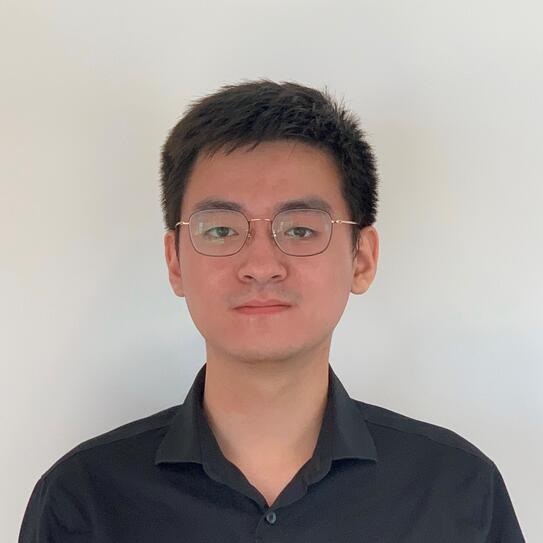Tong Zhang

What brought you to business school? Why did you choose Columbia Business School and MSFE program?
My undergraduate major was mainly in science. However, I always believed that both solid knowledge and business acumen are key drivers to success as an investor. Therefore, the MSFE program at Columbia Business School is the perfect program for me, because of its strategic combination of rigorous PhD-level training and wide exposure to the real-life business environment. For every business topic, I can learn from an academic viewpoint through my PhD courses and from a practitioner’s viewpoint through my MBA classmates and courses. This unique learning experience has helped me think differently when trying to overcome challenges in my workplace.
What has been your favorite part of the MS experience so far?
The master’s thesis of our program is absolutely my favorite. Every MSFE student was required to finish a thesis during their last semester. We had to find an interesting topic and conduct independent research under a professor’s supervision, which sharpened my academic research skill as well as satisfied my intellectual curiosity. My topic focused on the interaction between stock price and trading volume, where I replicated results and extended the data sample to 2018 to see whether my findings were applicable to the current market. My findings have been beneficial and have been a great reference point to my recent working projects.
What is it like going to business school in New York City?
The unparalleled location of Columbia Business School in NYC offered us a unique opportunity to engage in the cutting-edge business world. We not only learned from top-tier professors who had rich work experience within the industry, but also learned and heard from senior professionals from leading companies across the globe. I attended various guest speeches, seminars, and conferences that substantially broadened my horizon and improved my understanding of how businesses function.
Favorite faculty/courses so far?
My favorite course is Machine Learning, which was specifically designed for MSFE and MS in Marketing Science students at Columbia Business School. Our professor had a strong background in the industry. In addition to having textbook-level knowledge, he also taught various practical applications of machine-learning models, and how to optimize these models in real-world projects based on his experience as an investment professional. Due to the small class size, it felt more like a seminar than a class session. Students had the opportunity to introduce any topic relevant to the lecture, and were welcomed to exchange ideas.
How has the experience and expertise of your professors impacted your learning?
One of the greatest and most impressive professors I met at Columbia Business School was Professor Wei Jiang, who taught us the Panel Data Analysis course. Drawing from her own research experience, she always emphasized the causality behind data, and gave various examples on why specious patterns in data did not necessarily embed true causality, and how these patterns can lead to wrong conclusions. Her teaching was so impressive and engaging, that I will now never forget to pay extra attention to the causality relationship when I explore new datasets in my work.
What do you want to do next? How has Columbia uniquely prepared you for your future?
Currently, my goal is to consistently develop the best trading ideas for my team using my unique toolkit obtained from the MSFE. I find that my study in the MSFE program has helped enable me to think differently. Now, when I need to build a quantitative model to explain the data, I always keep on the back of my mind, the business intuition behind the model. This habit has helped me significantly in making better and more robust trading strategies in my recent work.
Before joining Columbia Business School, I did not have a clear career plan. I only knew that I wanted to go into the quantitative finance industry where I could apply my mathematical modeling skills to solve complex real-world questions. After finishing my summer internship at Point72, I decided to pursue a career in the hedge fund industry, finding best equity trading strategies as a quantitative researcher.
How would you describe the culture of the program?
The collaborative culture in the MSFE program is incredible. Professors at Columbia Business School are more than willing to talk to us, and to be of help if we need it. The doors are always open, and professors are happy to answer our questions, listen to and provide feedback to our research projects, give career advice, and are generally open to discussion on any topic. They unreservedly share their opinions and insights, which is incredibly valuable to us as students.